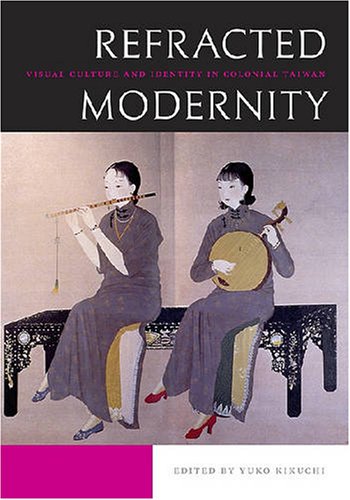Product desciption
Refracted Modernity Visual Culture And Identity In Colonial Taiwan Yuko Kikuchi by Yuko Kikuchi 9780824830502, 9781435666252, 0824830504, 1435666259 instant download after payment.
Since the mid-1990s Taiwanese artists have been responsible for shaping much of the international contemporary art scene, yet studies on modern Taiwanese art published outside of Taiwan are scarce. The nine essays collected here present different perspectives on Taiwanese visual culture and landscape during the Japanese colonial period (1895-1945), focusing variously on travel writings, Western and Japanese/Oriental-style paintings, architecture, aboriginal material culture, and crafts. Issues addressed include the imagined Taiwan and the "discovery" of the Taiwanese landscape, which developed into the imperial ideology of nangoku (southern country); the problematic idea of "local color," which was imposed by Japanese, and its relation to the "nativism" that was embraced by Taiwanese; the gendered modernity exemplified in the representation of Chinese/Taiwanese women; and the development of Taiwanese artifacts and crafts from colonial to postcolonial times, from their discovery, estheticization, and industrialization to their commodification by both the colonizers and the colonized.The central theme of this volume is "refracted modernity"--the recursive and transferable nature of modernity--in the context of colonialism. Modernity and identity in Taiwanese visual culture emerged in the cross-cultural complexity engendered by Japanese colonization. Their formation involves a range of interdependent cultural transfers and appropriations between Europe, Japan, and Taiwan. Viewed in terms of refracted modernity, the state and product of localization/appropriation appears in an eclectic manner and is often characterized by the term "hybrid." The notion of hybridity describes the complex state that results from the continuous dissemination and translation of cultures in colonial situations, thus revising the one-dimensional historical analytical models of colonialism. The model presented in this volume instead stresses original and creative aspects and renounces the notion of imitation, a judgment often imposed by the Eurocentric view. Offering many examples of hybrid expressions that render Taiwanese visual culture unique and attractive, the case studies collectively make a strong argument for revising the traditional positioning of colonialism while offering a thought-provoking perspective on Taiwan's surge forward as a major force in contemporary art today.Refracted Modernity: Visual Culture and Identity in Colonial Taiwan will be of substantial interest to historians of Taiwan, China, and Japan; art historians of Chinese and Japanese art; and scholars of colonialism, decolonization, modernism, and modernity in general. Readers in the fields of anthropology, cultural studies, visual culture, and women's studies will find its essays timely and highly informative.


